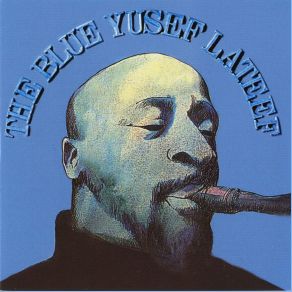The Blue Yusef Lateef (Remastered)
Download links and information about The Blue Yusef Lateef (Remastered) by Yusef Lateef. This album was released in 1969 and it belongs to Jazz, Rock genres. It contains 8 tracks with total duration of 36:22 minutes.

|
|
|---|---|
| Artist: | Yusef Lateef |
| Release date: | 1969 |
| Genre: | Jazz, Rock |
| Tracks: | 8 |
| Duration: | 36:22 |
| Buy it NOW at: | |
| Buy on iTunes $7.92 | |
Tracks
[Edit]| No. | Title | Length |
|---|---|---|
| 1. | Juba Juba | 4:23 |
| 2. | Like It Is | 7:32 |
| 3. | Othelia | 4:35 |
| 4. | Moon Cup | 3:16 |
| 5. | Back Home | 5:00 |
| 6. | Get Over, Get Off and Get On | 3:46 |
| 7. | Six Miles Next Door | 4:46 |
| 8. | Sun Dog | 3:04 |
Details
[Edit]Though there is some confusion about what happened to the 32 Jazz label, producer Joel Dorn's other project, his label M, is following closely in its footsteps; unique packaging and a wealth of fine material licensed from Dorn's years as a jazz producer at Atlantic Records seems its sole M.O.. On The Blue Yusef Lateef, listeners get an amazing chapter from the late '60s, an amazing period when everything in the world of jazz was changing. Lateef was big on concept recordings. He and Dorn did no less than ten during their tenure together at Atlantic. This one examines, in a painterly way, all the different ranges of emotion contained within the blues genre. With a band that included Detroit jazz gods Roy Brooks on drums and Kenny Burrell on guitar, Blue Mitchell on trumpet, Hugh Lawson on piano, Sonny Red on alto, Bob Cranshaw on electric bass, and a very young Cecil McBee on acoustic bass, you get the idea that Lateef was after something different. Lateef performs on not only his tenor and flute, but bamboo and pneumatic flutes, tamboura, koto, and others; Lateef was exploring the outer reaches of the blues as they might appear and appeal to Eastern as well as Western cultures. From the opening moments in "Juba Juba," everything comes in one package — the slow, snaky groove only the blues can provide, with the Eastern scale modalities and polyphony attached via Lateef's flute and Brook's percussion. But before becoming too ethereal, Mitchell chimes in with a barrelhouse muted trumpet and Buddy Lucas wails a shuffle on harmonica. There is also an unidentified female gospel chorus humming in the background — reminiscent of the Staples at their spookiest. Next up is the even-more Eastern-tinged "Like It Is," sounding like it was left off "Blues from the Orient." Lawson's minor key explorations and Brooks' spontaneous actions with a variety of percussion instruments usher in a groove that only Lateef could create. It is very slow, harmonically complex, and lush in a manner that suggests exotica sans the corniness of Les Baxter. It quietly roars with a melodic polytonality courtesy of Lateef's tenor, joined by Lawson's striking mode changes in his solo. Then comes the barrelhouse romp of "Othelia," the Japanese psychedelia of "Moon Cup," and the samba-fied bluesiana of "Back Home," citing Afro-Cuban pop Machito arrangements inside a Brazilian carnival-chant created of vocal overtones and greasy rhythms. You get the picture. The Blue Yusef Lateef is one wild album. In sound, it is the very best the '60s had to offer in terms of experimentation and accessibility. This is blues you can dance to, but also meditate to and marvel at; a pearl worthy of the price.